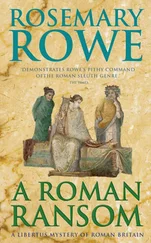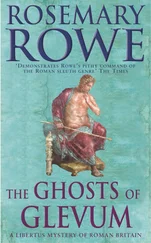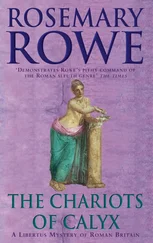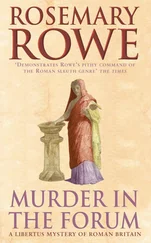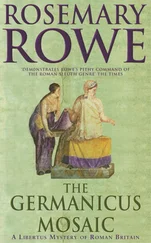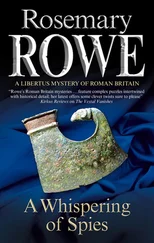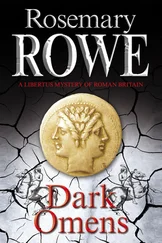Rosemary Rowe - Death at Pompeia
Здесь есть возможность читать онлайн «Rosemary Rowe - Death at Pompeia» весь текст электронной книги совершенно бесплатно (целиком полную версию без сокращений). В некоторых случаях можно слушать аудио, скачать через торрент в формате fb2 и присутствует краткое содержание. Жанр: Исторический детектив, на английском языке. Описание произведения, (предисловие) а так же отзывы посетителей доступны на портале библиотеки ЛибКат.
- Название:Death at Pompeia
- Автор:
- Жанр:
- Год:неизвестен
- ISBN:нет данных
- Рейтинг книги:5 / 5. Голосов: 1
-
Избранное:Добавить в избранное
- Отзывы:
-
Ваша оценка:
- 100
- 1
- 2
- 3
- 4
- 5
Death at Pompeia: краткое содержание, описание и аннотация
Предлагаем к чтению аннотацию, описание, краткое содержание или предисловие (зависит от того, что написал сам автор книги «Death at Pompeia»). Если вы не нашли необходимую информацию о книге — напишите в комментариях, мы постараемся отыскать её.
Death at Pompeia — читать онлайн бесплатно полную книгу (весь текст) целиком
Ниже представлен текст книги, разбитый по страницам. Система сохранения места последней прочитанной страницы, позволяет с удобством читать онлайн бесплатно книгу «Death at Pompeia», без необходимости каждый раз заново искать на чём Вы остановились. Поставьте закладку, и сможете в любой момент перейти на страницу, на которой закончили чтение.
Интервал:
Закладка:
Beyond her, on the farther stool, sat a plump and pretty girl — she might have been twenty-one or so at most. She was dressed from head to toe in pink, and her complexion and neatly braided golden hair needed no assistance from the cosmetic box.
And sitting between them, what was obviously the bride.
Poor girl. She was as plain as the doorkeeper had said — round-faced as a pudding and graceless as a pig — but all the same my heart went out to her. Though she sat there conspicuous in her saffron-coloured veil, I have never seen a girl look more forlorn.
Her bridal costume somehow only made it worse. The plain white tunic, tied beneath the breasts with that suggestive knot which only the bridegroom is entitled to untie, gave her the appearance of a carpet tied with string. The traditional yellow mantle — to match the leather shoes — accentuated the sallow colour of her cheeks. Her mousy hair hung lankly beneath the flimsy veil, though it had obviously been carefully arranged. Gwellia had explained to me last night how it was done — she having done it for a Roman mistress once. It was groomed and parted with a special spear-shaped comb, and carefully formed into the traditional six plaits, representing the six great tribes of Rome. I could just make out the droopy ends of them. The bridal wreath of marjoram and myrtle which held the veil in place, far from being a floral crown of joy, only made her look more pathetic and absurd.
I was just making a mental note of all of this, so that I could tell Gwellia when I got home again, when a voice spoke at my elbow, ‘Can I help you, citizen?’
I whirled round to see a little fair-haired slave, no more than eight or nine, wearing the light-blue tunic of the house, and carrying a large basket of walnuts in his hand.
‘I could not find an attendant to announce me,’ I explained, embarrassed at being found skulking in the hall, spying on the wedding guests like this.
I meant only to offer an excuse, but he took it as a serious rebuke. ‘I’m sorry, citizen. I should have been on duty at the door to help escort the visitors, but I was called away. My master sent me to fetch these from the store.’ He shook the basket at me, rattling the nuts. ‘I didn’t expect that it would take me very long, but the kitchen slaves were very busy with the feast, and I could not find where they had stored the nuts. No one expected that we’d be needing them — usually the bridegroom brings some for himself, to throw to the crowd as he takes his bride back home — but the ones that he had ordered turned out to be bad. We had a message from him, just a little while ago, when he was ready to set off from home. Fortunately my master remembered we had these, so I was sent at once to look for ours. It would be an awful omen, wouldn’t it, to give away bad walnuts on your wedding day?’
He was prattling out of nervousness, I saw and I tried to reassure him with a smile. ‘Never mind, you’re here now. You can show me in.’
He nodded earnestly. ‘I’m very sorry citizen, to have left you standing here — I came as soon as possible when I heard the gong. I didn’t even stop to put the basket down — but. . Oh, dear Mars! — there goes the gong again. There must be other visitors waiting at the door.’
I nodded. ‘Two important ones,’ I said. ‘I saw them in the street. They’ve taken a few minutes to come up to the door. I think they were waiting for me to be safely out of sight. So, if you’ll announce me, I’ll go and join the crowd.’ I gave him a conspiratorial wink. ‘And if I were you, I’d put those walnuts down. You look like a street vendor with that basket on your arm.’
He gave me a grateful look and put the basket down beside a handsome wooden table with a shoe-shaped lamp on it. ‘You won’t tell my master that I was delayed?’
‘Nor that you stood here chattering when you did arrive!’ I said. In fact, his artless prattle was delaying me — though a sign, at least, that I hadn’t frightened him. Perhaps I could ask him to point Antoninus out. I raised an eyebrow in mock severity. ‘So, now perhaps, you’d kindly show me in.’
He had the grace to look a bit abashed. ‘Who shall I tell them, citizen?’ he asked. He pushed wide the door that I’d been peering round and took a step into the room, just as the gong rang out again — more insistently than ever. He looked back at me, uncertain what to do.
I was on the point of giving him my name, when I was rooted to the spot by an amazing sight. Minimus had appeared in the courtyard from somewhere at the rear, and was jostling his way through the distinguished guests. He was acting in a most unslave-like manner, too — almost in danger of elbowing one fat young councillor aside.
He saw me standing at the inner door and his face cleared at once. He wriggled out into the atrium and hurried up to me, oblivious to the fact that half the wealthy citizens of Glevum were staring after him.
‘Master,’ he blurted, not even waiting for me to give him leave to speak. ‘I think you’d better come. His Excellence would have sent for you, if he had been here himself, instead of being on his way to Rome — even if you hadn’t been invited as a guest. I told the chief steward so and managed to persuade him that I should come and look for you. He’s in no state to do anything himself. And someone must take over. There’s been an accident.’
Three
There was a dreadful hush in which I became uncomfortably aware that the eyes of the whole room were fixed on me. For a fraction of a moment no one moved at all. Then suddenly the gong boomed out again, and — as if it was a signal — an outraged murmur of whispering began.
Then one voice rang out above the rest — a creaking high voice, like a wheel in want of oil — ‘What is the meaning of this disgrace, young man?’
It was the grandmother. She rose to her feet and marched down from the dais, more like an ex-soldier than a woman in a gown. ‘And what do you mean, there’s been an accident? Don’t you realize that even to mention such a word is a terrible ill omen on a day like this?’ She seemed oblivious that her own voice rang out across the room so that — if there was an omen — she was redoubling it. She stood, arms folded, as if confronting us. ‘If there has been some kind of unfortunate event, it should be dealt with quietly in the servants’ room upstairs — not trumpeted in public to disturb the guests.’
She gestured towards the company as she spoke, and at once the men at least began to turn away and talk in loud voices about other things, pretending — like the well-bred Roman citizens they were — not to have noticed anything amiss, though they had all been staring, goggle-eyed, till then.
She noticed and lowered her voice into a hiss. ‘You have embarrassed us, young man. When we’ve taken such trouble to consult the auguries — and at such expense. It’s unforgivable. So kindly take your impudent young slave, and leave the house. Who are you anyway?’
I had not realized till that moment that she was addressing me. Perhaps I should have guessed — she was not the sort of person who would waste her personal attention on a slave like Minimus — but it is a long time since anybody called me a ‘young man’, and longer still since anyone had rebuked me like a child. I am over fifty and, though this woman was my senior by ten years or so, we two were much the oldest people in the company. Her stinging onslaught took me so much by surprise that for a moment I could not find my tongue.
Minimus answered for me, apologetically, ‘This is the citizen Libe-’
She turned and rapped him smartly on the ear with the ivory handle of her folding vellum fan. ‘Silence, oaf! I was not asking you. If he’s too ill-bred to answer for himself, I will consult my page.’ She turned to the youngster. ‘Slave! Who is this. . citizen?’ The sneering pause before the final word made it quite clear what her opinion was of my bedraggled toga and its presence in her house.
Читать дальшеИнтервал:
Закладка:
Похожие книги на «Death at Pompeia»
Представляем Вашему вниманию похожие книги на «Death at Pompeia» списком для выбора. Мы отобрали схожую по названию и смыслу литературу в надежде предоставить читателям больше вариантов отыскать новые, интересные, ещё непрочитанные произведения.
Обсуждение, отзывы о книге «Death at Pompeia» и просто собственные мнения читателей. Оставьте ваши комментарии, напишите, что Вы думаете о произведении, его смысле или главных героях. Укажите что конкретно понравилось, а что нет, и почему Вы так считаете.



